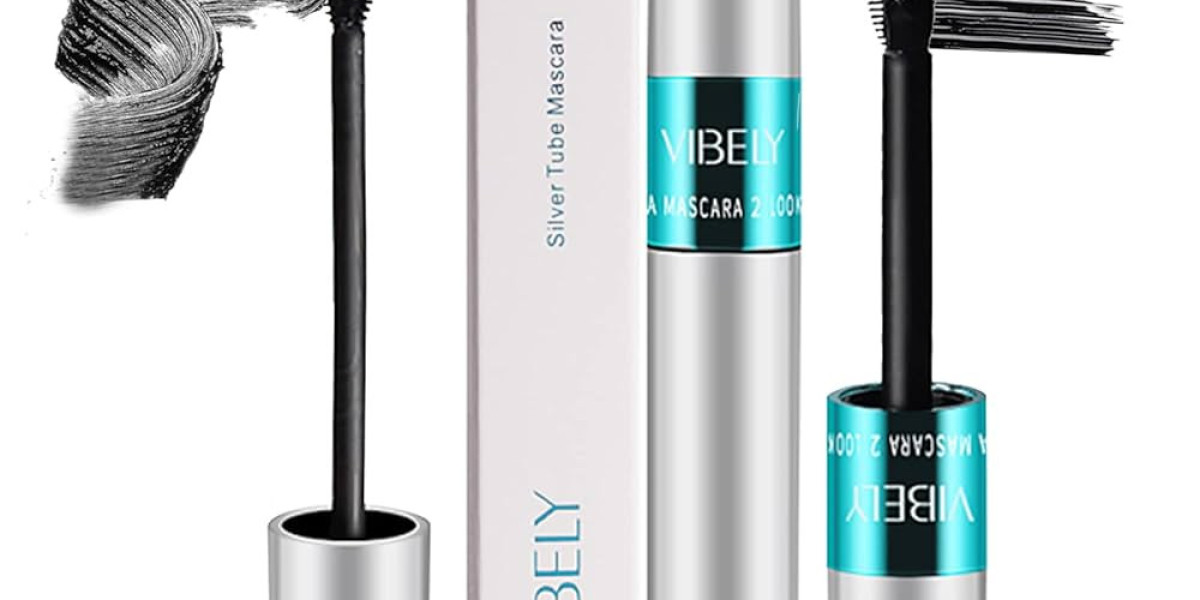Nitrile gloves are the top choice in many industries for their strong protection against punctures, chemicals, and oils. Nitrile gloves Australia synthetic rubber makes them dependable in high-risk environments, and they offer a safe alternative for individuals with latex sensitivities, reducing the risk of allergic reactions. In Australian industries, reliance on nitrile gloves demonstrates their practicality for tasks needing a strong, flexible barrier. Their ability to maintain integrity under stressful conditions makes them essential for handling hazardous substances.
Benefits of Nitrile Gloves
Nitrile gloves combine superior strength, flexibility, and chemical resistance, delivering dependable protection. This durability means gloves are less likely to fail, even in demanding situations, letting users work confidently and safely.
Nitrile gloves are hypoallergenic, ideal for those sensitive to latex. This reduces the chance of skin irritation during extended use, especially in professions that require gloves for long periods.
Nitrile gloves offer high tactile sensitivity for precise handling. Textured fingertip options improve grip, supporting accuracy in detailed tasks such as lab work or medical procedures. Automotive technicians frequently rely on nitrile gloves when dealing with grease, lubricants, and fuels, as these gloves offer a strong barrier while allowing precise hand movements.
Maintain Cleanliness
Powder-free nitrile gloves help maintain cleanliness by eliminating powder residue, key in food prep and pharmaceutical settings. Their versatility, durability, and hypoallergenic qualities underline their essential role in maintaining hygiene.
These gloves are manufactured in a variety of thicknesses and textures to cater to the specific requirements of different tasks. Powder-free options, for instance, are particularly valued in environments such as food handling and healthcare, where contamination risks must be minimised.
Their adaptability, combined with their reliable protective properties, has made nitrile gloves a staple in workplaces that require both functionality and compliance with stringent hygiene standards.
Uses of Nitrile Gloves
Nitrile gloves are widely employed across multiple sectors due to their dependable protective properties and versatility. In the healthcare industry, these gloves are indispensable for procedures such as patient examinations, wound care, and handling medical instruments, ensuring both patient and professional safety.
Their resistance to punctures and chemicals makes them particularly valuable in laboratories, where handling potentially hazardous substances requires reliable protective equipment. Additionally, their powder-free varieties are particularly suited for environments requiring strict cleanliness standards, minimising risks of residue affecting the quality of food or materials.
The food service sector benefits significantly from the use of nitrile gloves, as they support hygiene practices by preventing the transfer of contaminants during food preparation and handling. This makes them a preferred option in environments where allergy concerns are prevalent.
Manufacturing and Industrial Settings
In manufacturing and industrial settings, nitrile gloves are utilised for handling chemicals, oils, and other substances that may pose safety risks. Their durability ensures prolonged usage in demanding tasks, providing both comfort and protection for workers.
Beauty and cosmetic industries also incorporate nitrile gloves into daily operations, such as hair colouring or skin treatments, where safeguarding the skin from irritants and maintaining hygiene are priorities. Their adaptability continues to serve professionals across a variety of demanding roles.
Comparison with Other Disposable Gloves
Nitrile gloves stand out among disposable glove options due to their combination of durability, chemical resistance, and hypoallergenic properties. Unlike latex gloves, which are valued for their natural elasticity, nitrile gloves are synthetic and eliminate the risk of allergic reactions associated with latex materials.
In comparison to vinyl gloves, nitrile gloves offer superior strength and protective qualities. While vinyl gloves are cost-effective and suitable for low-risk tasks, they are less robust and prone to tearing, which limits their effectiveness in high-demand or hazardous settings. Nitrile gloves provide a more reliable barrier, particularly in industries requiring exposure to chemicals, oils, or biological substances.
Additionally, nitrile gloves are designed to accommodate diverse professional requirements through features such as textured fingertips for enhanced grip and a variety of thickness levels for different applications. These qualities make them a versatile choice for industries that prioritise both safety and functionality.
Particularly Advantageous For Sectors
The consistent quality and adaptability of nitrile gloves position them as an ideal alternative to other types of disposable gloves, particularly for tasks where protection, durability, and allergy considerations are critical.
This approach is particularly advantageous for sectors such as healthcare, manufacturing, and food preparation, where gloves are a daily necessity. Additionally, online platforms have become a significant avenue for procurement, providing a wide selection of brands, sizes, and thickness levels.
Nitrile gloves in Australia are available in various configurations, including powdered and powder-free versions, textured designs, and options suited to specific industries. This diversity allows businesses to source gloves that meet safety standards while fulfilling their operational needs efficiently.
Availability of Nitrile Gloves in Australia
Nitrile gloves can be sourced through numerous channels across Australia, catering to both professional and personal needs. Suppliers specialising in medical and safety equipment often provide a variety of options to meet industry-specific requirements. Pharmacies and health supply outlets also stock nitrile gloves, ensuring convenient access for smaller-scale purchases.
For larger orders, wholesalers and distributors offer bulk purchasing options, which can be beneficial for industries requiring consistent supplies. Supermarkets and hardware stores commonly stock disposable gloves, including nitrile varieties, for general-purpose applications.
E-commerce websites often allow businesses and individuals to compare products and prices, ensuring they can choose gloves that align with their specific demands. Certain suppliers offer tailored services, such as subscription models, which enable regular deliveries and ensure uninterrupted supply chains.
Quality Standards and Regulations: Disposable Gloves Australia
In Australia, the production and use of disposable gloves Australia are governed by stringent quality standards to ensure their safety and effectiveness. Manufacturers must adhere to regulations that mandate thorough testing of gloves for their barrier properties, durability, and resistance to chemicals.
To meet Australian guidelines, nitrile gloves are evaluated for compliance with standards related to material composition and manufacturing practices. This ensures that the gloves maintain consistent quality and performance across different batches. Additionally, these regulations require clear labelling, enabling users to identify critical information such as glove size, thickness, and suitability for specific tasks.
Biological and Chemical Hazards
In sectors like healthcare, compliance with these standards is particularly crucial, as gloves must provide reliable protection against biological and chemical hazards. Certifications and regulatory markings indicate that the gloves meet the necessary requirements for safety and hygiene, giving organisations confidence in their choice of protective equipment.
For industries reliant on disposable gloves, adherence to Australian quality standards is a critical factor in ensuring that products meet both safety expectations and legal obligations. These tests confirm that the gloves provide adequate protection for various professional applications, including healthcare, food handling, and industrial tasks.
Priority Developments
Innovations tailored to specific industry needs are also anticipated to gain prominence. For instance, improved resistance to specialised chemicals, optimised grip features, and increased comfort during extended usage are likely to emerge as priority developments.
The integration of advanced manufacturing techniques could further streamline production processes, reducing resource consumption while maintaining high performance standards. Additionally, developments in packaging and logistics may improve storage and distribution, ensuring that gloves reach users efficiently while adhering to strict safety regulations.
This combination of innovation and adaptability highlights the dynamic trajectory of the glove industry. By addressing the dual objectives of performance and sustainability, future developments are poised to meet the growing demands of Australian industries while aligning with global environmental initiatives.
Environmental Impact
The environmental impact of nitrile glove usage is of concern because these gloves contribute to non-biodegradable waste. Since nitrile gloves are made from synthetic materials, they decompose slowly in landfills. This slow breakdown raises questions about the accumulation of waste and its effects on ecosystems, especially given the widespread use of disposable gloves.
To respond to environmental concerns, manufacturers are working on creating biodegradable nitrile gloves. These alternatives are intended to reduce landfill waste and help gloves break down more quickly. In addition, research into additives that speed up decomposition is ongoing, aiming to make glove disposal less harmful to the environment.
Testing Glove Recycling Programs
Some regions are testing glove recycling programs, but recycling nitrile gloves is difficult due to the risk of contamination from substances handled during use. These initiatives, however, signal a growing industry commitment to lessening the negative environmental effects of disposable gloves.
Sustainability considerations are further driving research into alternative production methods that could decrease reliance on virgin synthetic materials. Advances in technology and material science hold promise for the creation of gloves that balance performance with environmental stewardship, aligning with broader efforts to reduce the ecological impact of single-use products.
Potential developments in the glove industry
The glove industry is witnessing continuous advancements driven by the need for enhanced performance and sustainability. Research into alternative materials is gaining momentum, with a focus on creating gloves that combine durability with a reduced environmental footprint.
Technological improvements are also being explored to increase user comfort and functionality. For instance, the integration of moisture-wicking technologies and improved ventilation could enhance the wearability of gloves during prolonged use. Further developments in manufacturing processes aim to minimise resource consumption while maintaining the quality and protective attributes of the gloves.
Higher Resistance to Specific Chemicals
Customisation is another area of focus, where gloves are tailored to meet the unique requirements of specific industries. This includes advancements such as coatings for enhanced grip, formulations for higher resistance to specific chemicals, and textured designs to aid precision tasks.
Efforts are also being directed towards reducing production waste, with manufacturers investigating closed-loop systems and more efficient resource utilisation. These emerging technologies and approaches represent the ongoing evolution within the industry to meet growing demands for safety, adaptability, and environmental responsibility.
Conclusion
The continued reliance on nitrile gloves Australia across diverse sectors underscores their importance in maintaining safety and hygiene standards. Advancements in material science and production technologies are expected to shape the future of nitrile gloves, addressing evolving industry requirements. A key area of focus involves enhancing environmental sustainability, with research directed at creating biodegradable alternatives and improving recyclability to mitigate ecological concerns.
FAQs
1. Are nitrile gloves environmentally friendly?
While nitrile gloves are not inherently eco-friendly due to their synthetic composition, advancements in biodegradable materials are being developed to address sustainability concerns. Efforts to improve recycling processes are also in progress, although challenges related to contamination remain.
2. Are nitrile gloves Australia suitable for individuals with sensitive skin?
Nitrile gloves Australia are manufactured from synthetic rubber and are generally free from allergens associated with latex gloves. This makes them a suitable option for those with latex sensitivities or skin conditions requiring hypoallergenic protective solutions.
3. Which industries benefit the most from nitrile gloves?
Nitrile gloves are extensively used in industries such as healthcare, where hygiene and protection against biological hazards are crucial. They are also widely utilised in food preparation and handling, as well as in industrial sectors requiring resistance to chemicals, oils, and other substances, ensuring safe and efficient operations across various professional environments.
Related Business Listings |















